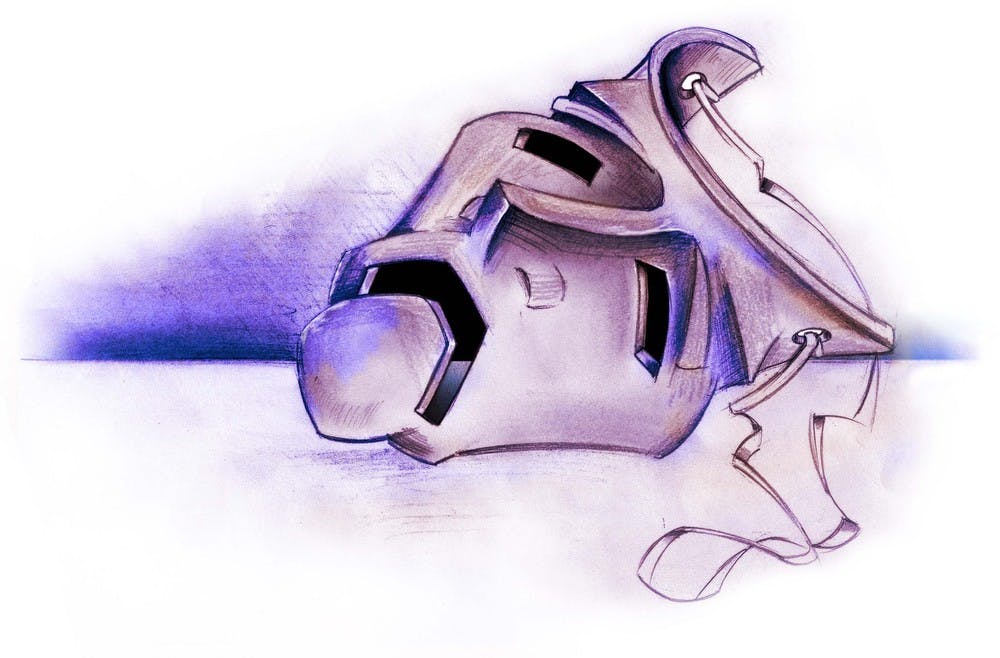I grew up knowing I was a bit different. No other kids were walking door-to-door collecting money for UNICEF. It was I alone who cried in the bathroom after watching the test explosion of the first atomic bomb in class. No one else seemed as keen to research facts about the global lack of water availability. In short, I cared.
But it wasn’t all roses. Applied to different situations, my care took on the negative connotation of being overly sensitive.
I quickly realized that my strong emotions were seen as undesirable and often considered a sign of weakness. For instance, in our workforce, emotional labor is at large not factored into the payroll. Being in tune with one's emotions is largely undervalued in our material society. Nonetheless it offers strengths and there are ways to harness its powers while diminishing adverse side effects.
There are indeed benefits to having intense emotions. It often couples with a good intuition and social acuity, which surprisingly go hand in hand. These often lead to inexplicable talents, such as knowing how to be in the right place at the right time and understanding how to persuade others to side with your perspective.
What may seem like magic or grand coincidence can actually often be attributed to an unconscious understanding of social structures and patterns (to learn more check out "SuperSense," by Bruce Hood). For me, I have found I have an uncanny knack for predicting the next fashion trends, which have actually been proven to take on a pattern. Talents such as this are hard to identify, but have unseen perks.
Besides this, being someone with vast emotions can help you read others' emotions. This helps with social interactions as a whole and maintaining an awareness of how you affect others. When you are the only one who recognizes when a person around you seems off, you become an indispensable player in helping them out and making them feel cared for.
Emotional intelligence and emotional regulation are real areas of study in psychology. Just as there are advantages to strong emotions, there are drawbacks that require maintenance. For these I have compiled a list of how to deal with being an emotion-driven person.
1. Being an “empath” often leads to absorbing others emotions
If this is the case for you, it is good to use mental tools to remain caring, but block the emotions from negatively affecting you. Labeling what the person is feeling, building a wall of positivity, turn empathy into compassion and avoid negative surroundings are all effective ways of achieving this balance.
2. Shame of crying
It feels weird to cry more than the average person, but what may be unnatural for others can be perfectly natural for you. Crying is a form of healing. Not to mention, feeling guilty about having emotions will only further fuel negative emotions. Don’t be afraid to cry. In most cases, it is best to just let it out and move on.
3. Find a release
For me, writing calms my emotions and helps me to release them in an effective, harmless way. For others, it may be a physical activity such as running or meditating. For Hot Rod, it was rage dancing in the woods. Find your release.
4. Build a life philosophy
In Ralph Waldo Emerson’s "Spiritual Laws," he states, “A few strong instincts and a few plain rules suffice us.” Building a strong belief system or a code of conduct for oneself can help immensely. Recently, I have had to remind myself to adhere to my duty and what I know to be the right course of action, even when my emotions say otherwise. It is good to find a balance of rationality and intuition.
5. Talk it out
Finding a trustworthy and rational friend to talk with will help to process and release emotional turmoil. So often, we are naïve to the different perspectives or possibilities surrounding a situation we perceive. Creating dialogue can aid in exploring different ideas and expanding overall understanding of the situation, outside of one’s internal emotions.
Most importantly, just as strong emotional knowledge helps understand other’s emotions, it can paradoxically blind us from others emotions when our emotions toward a situation run very strong. We must persevere to balance out our emotions enough to rationalize and utilize our emotions effectively to their highest potential. Emotion is simply energy in motion.
Related Links:
The sneaky sabotage of emotional cheating
The dangers behind emotional abuse
Reach the columnist at ralydfor@asu.edu or follow @ralydford on Twitter.
Editor’s note: The opinions presented in this column are the author’s and do not imply any endorsement from The State Press or its editors.
Want to join the conversation? Send an email to opiniondesk.statepress@gmail.com. Keep letters under 300 words and be sure to include your university affiliation. Anonymity will not be granted.
Like The State Press on Facebook and follow @statepress on Twitter.




